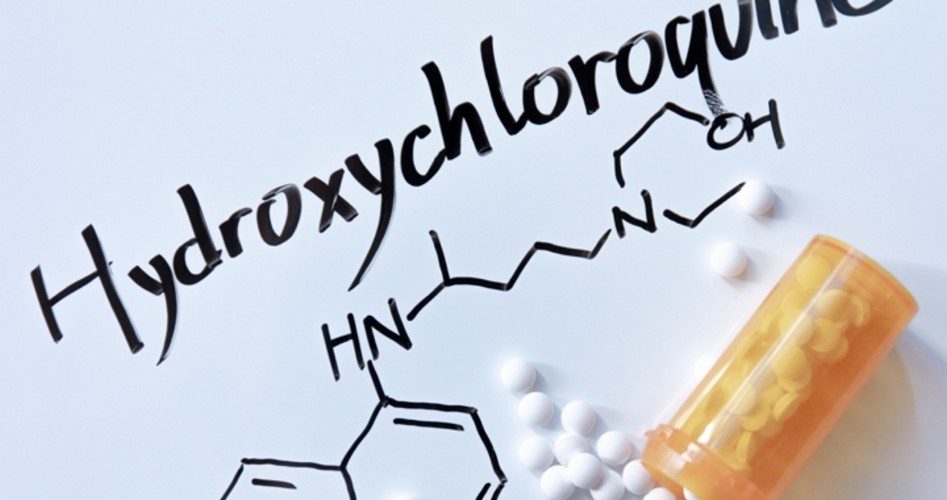
A very large study of the potential role of hydroxychloroquine in preventing COVID-19 has restarted after a regulatory body in the UK re-approved the work.
Known as the COPCOV study, it is being conducted by the MORU Tropical Health Network. MORU is an acronym for the Mahidol Oxford Tropical Medicine Research Unit, part of Mahidol University in Thailand.
On May 22, MORU notes, “the UK’s MHRA (Medicines and Healthcare Products Regulatory Agency) asked us to pause recruitment to our COPCOV trial.”
According to pharmaceutical industry news website Pharmabiz, the UK regulatory agency had asked “UK clinical triallists using hydroxychloroquine to treat or prevent coronavirus (COVID-19) to suspend recruitment of participants until further data, which justifies continuation, have been provided, and any additional safety measures have been implemented.”
That site noted that “MHRA received a request from the University of Oxford, on 17 June, to recommence recruitment to the ‘COPCOV’ trial.”
Of the stoppage in research, the Oxford COPCOV trial noted in a statement about the regulator’s decision to allow restart of its research: “The MHRA decision came 5 weeks after it reacted immediately to the now-discredited paper published in The Lancet suggesting harms with hydroxychloroquine, and paused recruitment of UK participants. But The Lancet paper was based on fabricated data and was swiftly retracted.”
Now, COPCOV notes, it can get back to work recruiting trial participants.
“A global study (COPCOV) to determine if hydroxychloroquine or chloroquine can prevent COVID-19 will resume enrolment of workers in healthcare facilities and other staff in contact with COVID-19 patients, after getting approval to proceed from the UK medicines agency,” the study said. “After this interruption, recruitment around the globe to COPCOV can now resume.”
Professor Nicholas White, the Co-Principal Investigator for COPCOV, emphasized that the study was looking at an important aspect of early treatment and even prevention of COVID-19 through use of hydroxychloroquine.
“The results of the large UK RECOVERY trial suggest that in sick patients hospitalised with COVID-19 the corticosteroid drug dexamethasone saves lives but hydroxychloroquine does not,” said White, who is a professor of tropical medicine at Mahidol University. “This suggests that inflammation is the main problem in the late stages of the illness whereas the window of opportunity for anti-viral drugs to work may be earlier in the course of the infection. Hydroxychloroquine could still prevent infections, and this needs to be determined in a randomised controlled trial. With 20% of the world’s population living in countries where these drugs are recommended for prevention, the question whether they can prevent COVID-19 or not remains as pertinent as ever.”
Recruitment in the UK will start first “at the Brighton and Sussex University Hospitals and at the John Radcliffe Hospital in Oxford this week, with more UK sites expected soon,” the study said.
UK lead investigator of the study, Professor Martin Llewelyn, emphasized the ongoing importance of studying hydroxychloroquine and its potential role in stopping COVID-19.
“Although rates of COVID are low just now in the UK, healthcare workers are still being affected across the NHS and a second wave of infection this winter is widely expected,” said Llewelyn, a professor in infectious diseases at the University of Sussex. “ In terms of finding an intervention that could protect key workers by this winter, hydroxychloroquine is by far the most realistic prospect. The recent post-exposure prophylaxis study confirmed its safety and indicated that it could be protective if given as pre-exposure prophylaxis. This is what COPCOV will find out.”
Notably, President Trump used hydroxychloroquine for pre-exposure prophylaxis, an action for which he was roundly and unfairly criticized in the mainstream media.
Co-Principal Investigator Dr. William Schilling of the University of Oxford also emphasized the need to understand the role and prospects for treatment represented by hydroxychloroquine.
“There remains no preventative drug therapy, no vaccine and no widely available treatment that is effective before a patient is already very sick,” said Shilling, a research physician with MORU. “If hydroxychloroquine and chloroquine are to work, they are much more likely to affect the disease the earlier they are given, but we need to know one way or another, and soon.”
The COPCOV study is a significant effort to understand and characterize the role of hydroxychloroquine in fighting COVID-19. It “is a randomised, placebo-controlled prophylaxis study to determine whether chloroquine or hydroxychloroquine prevents coronavirus disease (COVID-19) in the healthcare setting.”
According to the study’s plan, “Participants will take the study drugs each day for a period of three months, and will be followed closely to see how well the drug is tolerated, whether they contract the virus, and if they do, whether they develop mild or more severe COVID-19. If a participant develops COVID-19, they will be treated according to the treatment guidelines in their healthcare facility. The study aims to enrol 40,000 participants globally.”
The study hopes to report preliminary results by year-end.
Photo: xiao zhou/iStock/Getty Images Plus
Dennis Behreandt is a research professional and writer, frequently covering subjects in history, theology, and science and technology. He has worked as an editor and publisher, and is a former managing editor of The New American.



